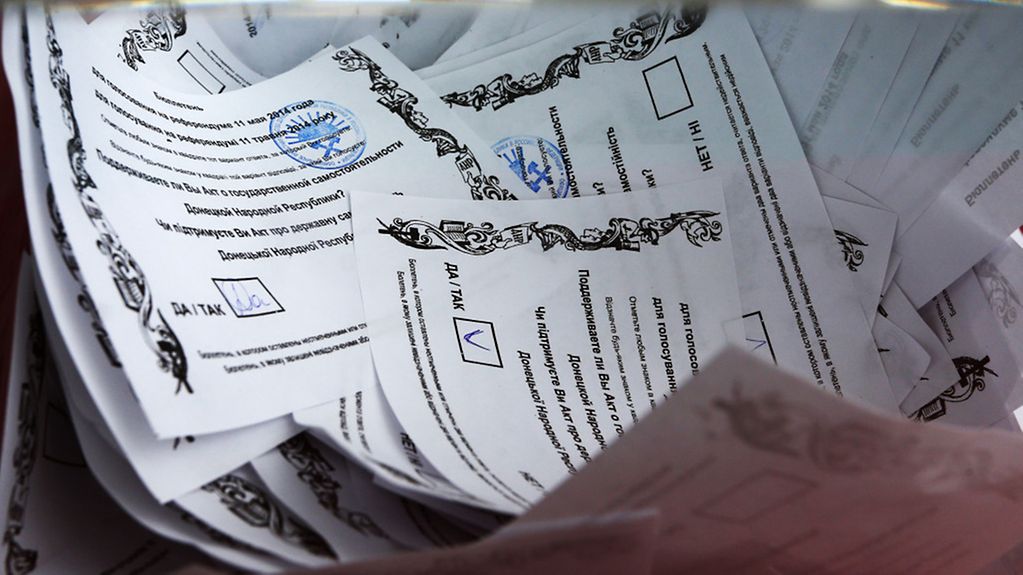Voting in eastern Ukraine
"The German government regrets that separatist groups have held so-called referendums in some parts of eastern Ukraine," declared government spokesperson Steffen Seibert. The international community will not recognise the vote, he added.
2 min reading time

Voting in eastern Ukraine had many similarities to the Crimean referendum
Photo: picture alliance/dpa/ITAR-TASS/Japaridze
"This vote clearly violates the Ukrainian constitution and was held under circumstances which make any regular vote absolutely impossible," continued Steffen Seibert. The similarities to the referendum in Crimea, which led to the illegal annexation of the region, are strikingly obvious.
The situation in eastern Ukraine is extremely tense. Lives are being lost every day. "We need steps that lead to de-escalation," stressed the government spokesperson. The referendum is definitely not such a step – quite the reverse is the case.
Translating the Geneva accord into practice
The German government is thus working to move along the path laid out by the OSCE in the Geneva accord, stated Steffen Seibert. This would entail:
- An end to the occupation of public buildings and the laying down of weapons; this would also enable the Ukrainian leaders to end their action against separatists;
- A national dialogue in Ukraine with the involvement of the OSCE to tackle such issues as decentralisation and elements of constitutional reform;
OSCE: German diplomat as co-facilitator
"The German government welcomes the fact that the ‘round tables’ in Ukraine have now got off the ground," said the government spokesperson. The former German diplomat Wolfgang Ischinger is to mediate in the Ukraine crisis on behalf of the Organization for Security and Co-operation in Europe (OSCE).
He will act as co-facilitator for the planned ‘round tables’, which are to bring together representatives of the Ukrainian government, the Ukrainian parliament and the regions around one table.
Wolfgang Ischinger is currently Chairman of the Munich Security Conference, one of the most important forums for international foreign and security policy. He is former German Ambassador to the USA and the United Kingdom.
Presidential elections crucial for stability in Ukraine
The presidential elections on 25 May are crucial to efforts to stabilise Ukraine. "We expect Russia in particular to use the major influence it has to make possible this stabilisation," underscored Steffen Seibert.
In this context he pointed to the joint statement issued by the Chancellor and the French President at the weekend.
EU tightens sanctions
In the meantime, EU ministers of foreign affairs meeting in Brussels have tightened sanctions on Russia. In response to the break-away and annexation of Crimea, travel bans and asset freezes were imposed on another 13 individuals. The assets of two companies were also frozen; these companies are held to have profited from the annexation of Crimea. Travel bans had previously been imposed on 48 Ukrainians and Russians.